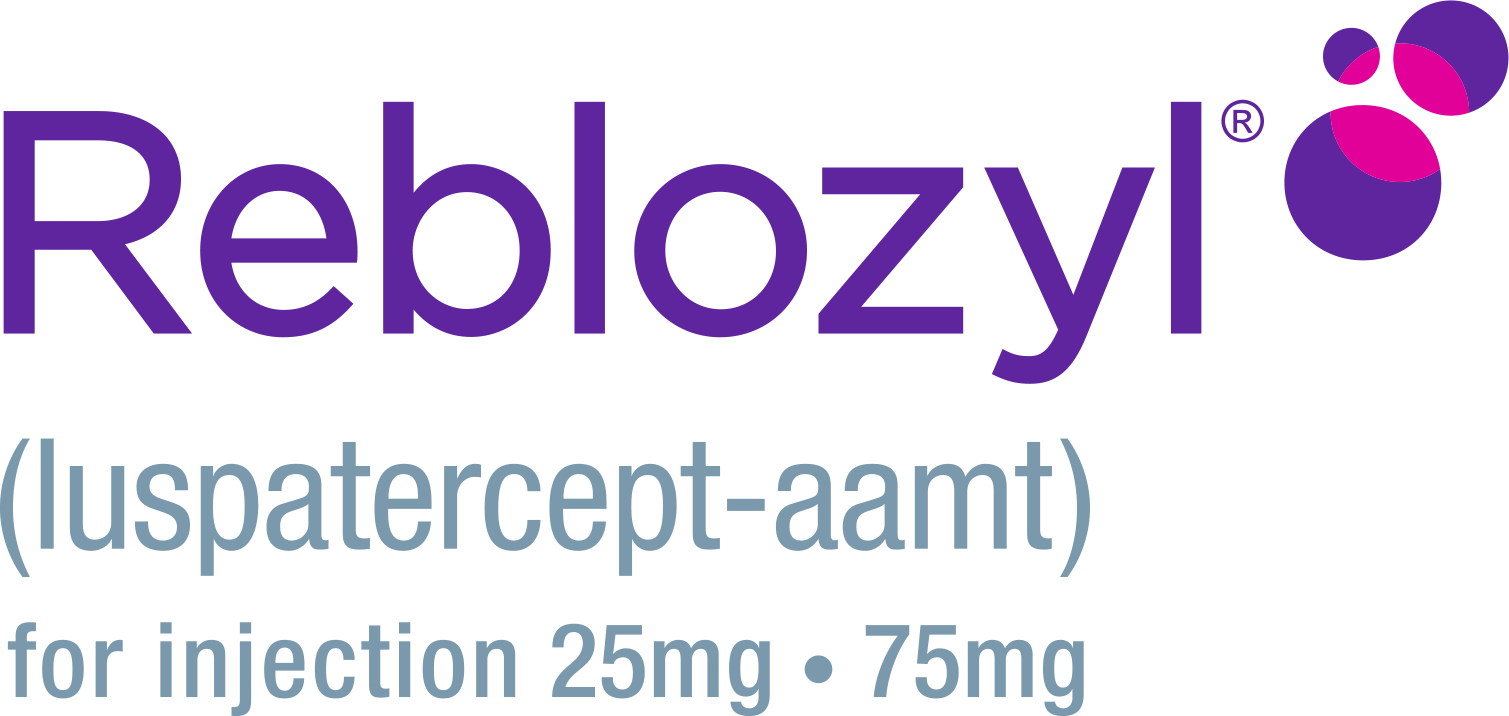PATIENT IDENTIFICATION: TARGET SECOND-LINE PATIENTs
In patients with MDS-RS,
Treat anemia with REBLOZYL after ESA failure1,2
NCCN Guidelines® recommends luspatercept-aamt (REBLOZYL) as a treatment option after 6-8 weeks of no response to ESAs2*
*For symptomatic anemia in very low- to intermediate-risk MDS with no del(5q) ± other cytogenetic abnormalities with RS <15% (or RS <5% with an SF3B1 mutation) and serum EPO ≤500 mU/mL

Consider REBLOZYL for adult patients who1,3:

Are failing on or intolerant to an ESA

Have anemia, requiring 2 or more RBC units over 8 weeks

Have been classified as either:
Very low- to intermediate-risk MDS with ring sideroblasts (RS), defined as MDS with:
- ≥15% bone marrow (BM) RS
- ≥5% BM RS with an SF3B1 mutation
OR
Myelodysplastic syndromes/Myeloproliferative neoplasm with ring sideroblasts and thrombocytosis (MDS/MPN-RS-T)
EPO=erythropoietin; ESA=erythropoiesis-stimulating agent; G-CSF=granulocyte colony-stimulating factor; MDS=myelodysplastic syndromes; MDS-RS=myelodysplastic syndromes with ring sideroblasts; NCCN=National Comprehensive Cancer Network (NCCN®); RBC=red blood cell.
Learn about the efficacy of REBLOZYL
References: 1. REBLOZYL [US Prescribing Information]. Summit, NJ: Celgene Corporation; 2023. 2. Referenced with permission from the NCCN Clinical Practice Guidelines in Oncology (NCCN Guidelines®) for Myelodysplastic Syndromes V.1.2025. © National Comprehensive Cancer Network, Inc. 2024. All rights reserved. Accessed November 18, 2024. To view the most recent and complete version of the guideline, go online to NCCN.org. NCCN makes no warranties of any kind whatsoever regarding their content, use or application and disclaims any responsibility for their application or use in any way. 3. Arber DA, Orazi A, Hasserjian R, et al. The 2016 revision to the World Health Organization classification of myeloid neoplasms and acute leukemia. Blood. 2016;127(20):2391-2405.

